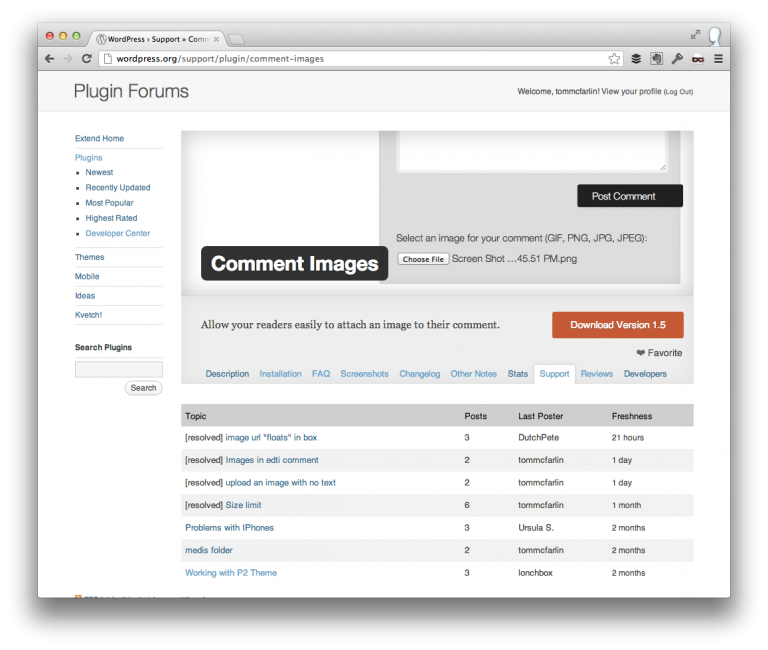One of the nicest things about WordPress is how easy it is for developers to extend its functionality, and how easy it is for users to find plugins that help them enhance their blog.
All conversations about plugin quality and compatibility aside, WordPress plugin support is one area of development that often seems to be rarely discussed (unless I’m missing all the people talking about it!).
WordPress Plugin Support

To me, it’s an interesting situation: We spend our time developing free software for others to use which implies that we’re prepared to offer support for said software.
Don’t get me wrong – I, like many others, understand what I’m signing up for when I release a plugin for free and I enjoy helping others. After all, if I’ve released something for others to use and it causes a problem for them, I have an obligation to help resolve it.
The thing is, the potential for support of any given piece of free software doesn’t scale.
The Business of Supporting Free Software
The way I see it, there are only a handful of options each of which have their various tradeoffs. I’m going to layout each option and their tradeoffs because I’m interested to see where everyone falls on this particular issue.
Free Software, Free Support
If the paradigm of software and support is a spectrum, then this option sits at one end. Simply put, this is when a developer opts to spend his or her time developing software, releasing it, and offering full support for the plugin once its released, free of charge, for anyone who opens a ticket.
Obviously, this model is the one that the WordPress plugin repository makes available.
Free Software, Freemium Support
In this option, the developer releases a free plugin and then offers support up to a certain extent. After some arbitrary threshold is met (assuming that it’s been detailed in a README or some other form of documentation), s/he will then offer more detailed support for a charge.
For what it’s worth, this is the model that I tend to see cropping up the most right now.
Free Software, Paid Support
This particular model is also a popular one, but I’ve seem some argue that this is against the nature of free software. Here, a developer releases a plugin, but then charges for support of any kind.
Again, I see this model relatively frequently and I’ve even used it in conjunction with a freemium model in two plugins that I’ve reitred.
Free Software, No Support
Finally, just as the Free/Free model outlined above sits at one end of the spectrum, this model sits at the other end. In this scenario, a developer release his or her plugin into the wild, and then ignores all support requests regardless of how they’re submitted – forum, email, Twitter, whatever.
Though I rarely see this, I do think it’s worth mentioning simply because it sits as one of the available options.
What’s a Developer To Do?
The bottom line is that when it comes to releasing free software, there are options for offering support.
Personally, I don’t think it’s an all-or-nothing solution: each plugin is different so how we offer support various; however, support doesn’t scale if a plugin becomes popular. There’s a tipping point by which the demand placed on the developer exceeds what s/he’s able to supply and they’re ultimately spending billable hours offering support.
With all of that laid out, I’m interested to know where you guys stand (and why)?


Leave a Reply
You must be logged in to post a comment.